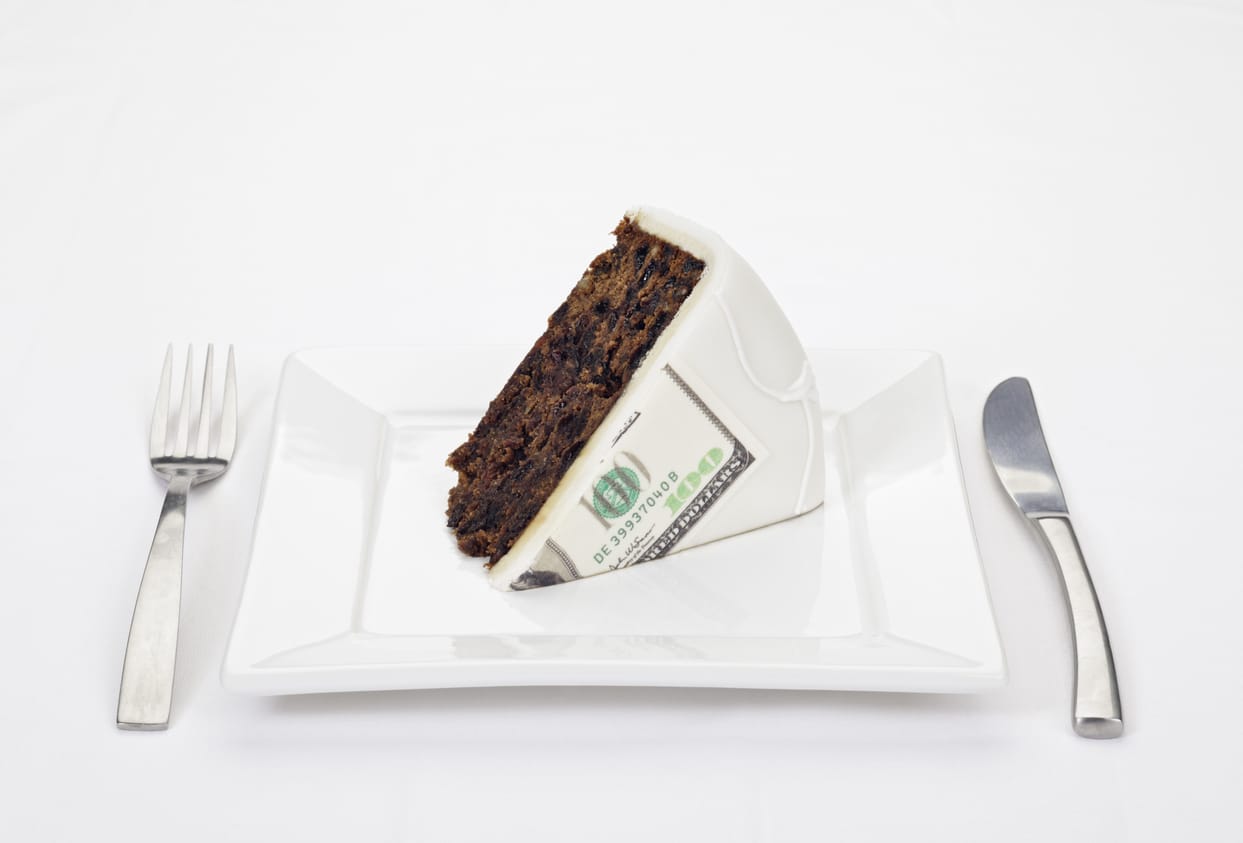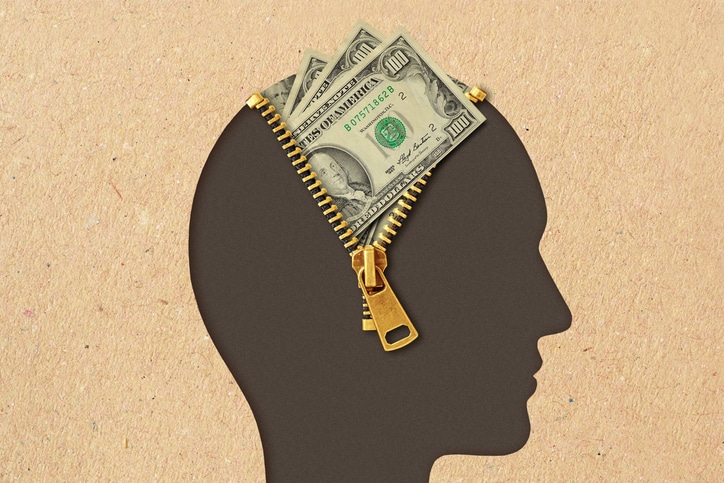Food & money disorders – what’s really going on?
In a recent 3-part series on his podcast, financial columnist, planner and therapist Rick Kahler talked to food and body image specialist Celia Clark about the similarities between unhealthy relationships with food and unhealthy relationships with money.
It turns out that there is a huge overlap, because in both cases it’s not about the food or the money, it’s about it’s about what they mean to the person and the relationship that person has with food or money. When people have an unmet relational need in their lives, money and/or food can become a replacement for that need. In fact, research on people who have undergone bariatric surgery to restrict what they can actually physically consume, shows that they often develop spending disorders. Because the core underlying need has not been addressed, it now shows up in spending rather than eating.
If I have a problem with gambling, shopping or alcohol, I can stay away from places and situations that are likely to get me into trouble. But with food and money, we can’t avoid either of them. We need food to survive and we need money to met our core survival needs, of which food is one of them. So, it’s really important to understand the drivers behind the behaviour, because there is always a reason, even if the behaviour leads to negative outcomes.
The podcast covered 6 main disorders:
- Seeking connection. We are hard-wired for connection. Mammals live in groups because it’s safer and connection is a vital evolutionary need. We also need other people for co-regulation. As infants, adults helped to soothe us and build our capacity for self-regulation. But the need for connection doesn’t ever leave us and we end up using money or food in moments when we feel the need for connection or comfort. With food it’s the experience of it coming into the mouth, the texture and the taste that promises fullness. With money, it’s what we are buying that offers the promise of filling that unmet need. On the flipside, it’s also possible to bond with restriction and this creates a dynamic where people feel safer not eating or spending.
- Seeking disconnection. This disorder is about numbing out. Maybe it’s going on a shopping app to distract from some kind of stress that’s going on. Unlike connection, this binge-eating or binge-spending, this process can become extreme because it’s aim is to take the person out of the present. To do that, the normal limiting mechanisms are taken overridden so the eating or spending process can run its full course.
- Reward. If our relationships are not meeting our needs, if we feel we’re not being seen or heard, then find other ways of feeling valued in the moment. A little gift to ourselves or maybe even booking a holiday, feels great. We’ve worked hard; we deserve it. All fine if we can afford it and if it’s not a replacement for unmet core needs or a lost connection.
- Rebellion. This can show up as a reaction to a feeling of constraint or simply to exercise power in the moment. After a fight with a partner the urge to ‘show them’ or reclaim some form of control can lead us to an act of self-indulgence.
- Punishment. This is a little more complex and occurs when people – usually those with significant early life trauma – become accustomed to sitting in a deep sense of chronic shame. There can be a compulsion to shift the energy of the moment and, counterintuitively, adding more shame via compulsive eating or spending, can bring some temporary relief.
- Protection. This set of behaviours are very much about feeling safe. Some people feel safer in a smaller body, so that the hunger piece is around staying safe. Some clients feel safer in a larger body. So, the protection is around the eating, and bringing food into the body to maintain the body size, because it feels safer to live in a larger body.
With money, the parallels are exactly the same. For some, spending feels dangerous and there is an urge to live with less, even when there is plenty. There is a compelling ‘stay small to stay safe’ dynamic, either from a financial perspective – having money = safety – or to escape potential scrutiny – don’t attract attention.
And, of course, the opposite is true. In a world that tells us that we are judged by what we have, staying small can equate to powerlessness. Bigger, better, more is the way forward and any diminution or constriction can feel like weakness, and hence life threatening.
So, what’s the connection here?
All behaviours, financial or otherwise, make sense when you understand the underlying drivers and beliefs.
At the heart of our relationships with everything (food, money, partners, etc) is our relationship with ourselves. What do I believe I can do, be or have with food, money, my partner, etc.
If you’d like to know more about your money behaviours or those of your clients, start with curiosity and compassion. And, if you’d like help, please get in touch.
You can book a chat with me using the button below. I can’t help with the food side, but I know people who can.




